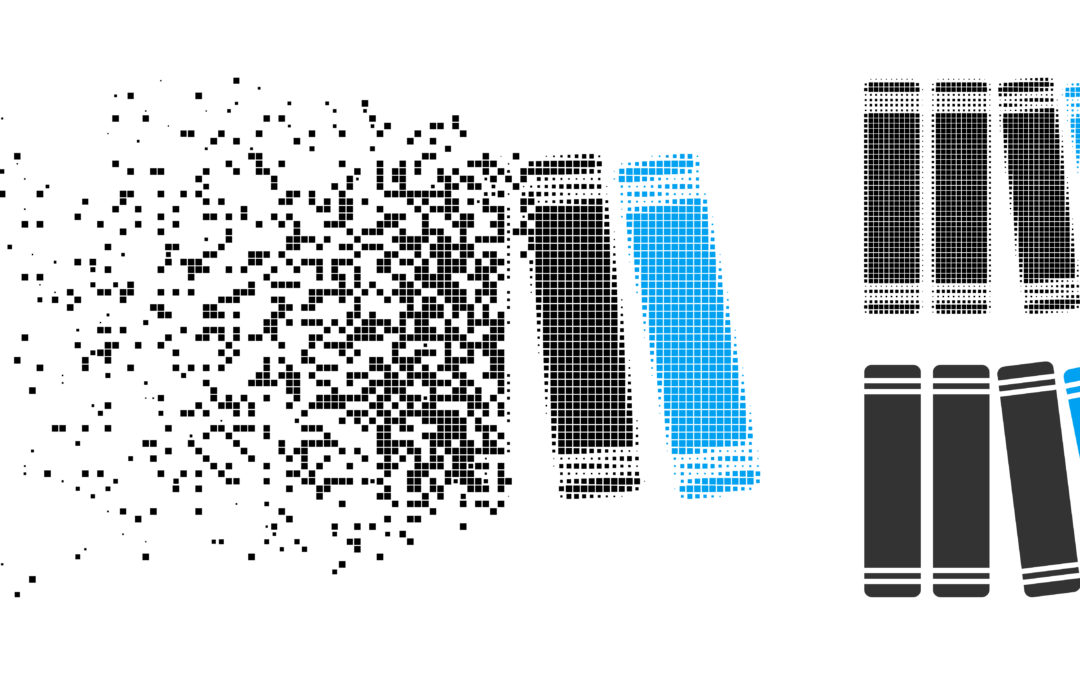
by Erica L. Meltzer | Nov 26, 2015 | Blog, The New SAT
As I’ve written about recently, the College Board (and David Coleman in particular) appears to have a somewhat tenuous relationship to the concept of evidence. It is therefore entirely unsurprising that the new SAT reflects this muddled definition.
Consider the following:
In a normal academic context, the word “evidence” refers to information (facts, statistics, anecdotes etc.) used to support an argument.
An argument is, by definition, a debatable statement. The point of using evidence is to provide support for one side or the other. On the other hand, reality-based statements that cannot be argued with, at least under normal circumstances, are generally considered facts. (more…)

by Erica L. Meltzer | Nov 18, 2015 | Blog, The New SAT
A couple of days ago, I was interviewed by Michael Arlen Davis for his forthcoming documentary The Test (working title).
Michael had interviewed me before, but this time he wanted to talk about the recent series of blog posts in which I’ve taken the College Board to task for the many inconsistencies and, shall we say, questionable claims regarding the new SAT.
One of the things that Michael asked me in the course of the interview was why so few people seemed to be talking about these issues and why, when they were brought up, they were usually dealt with in such as cursory and superficial manner.
As I explained, I’m a little taken aback that so few people are (publicly) scratching below the surface of the College Board’s claims in anything resembling a substantive manner. After all, only a very small amount of scrutiny is necessary to poke holes in many of those claims. (more…)

by Erica L. Meltzer | Nov 15, 2015 | Blog, The New SAT, Vocabulary
I’ve been following Diane Ravitch’s blog for a while now. I think she does a truly invaluable job of bringing to light the machinations of the privatization/charter movement and the assault on public education. (I confess that I’m also in awe of the sheer amount of blogging she does — somehow she manages to get up at least three or four posts a day, whereas I count myself lucky if I can get up that every couple of weeks.)
I don’t agree with her about everything, but I was very much struck by this post, entitled “The Reformers’ War on Language and Democracy.”
Diane writes:
Maybe it is just me, but I find myself outraged by the “reformers'” incessant manipulation of language. (more…)
by Erica L. Meltzer | Nov 8, 2015 | Blog, Issues in Education, The New SAT
I’ve been doing some more pondering about the claims of increased equity attached to the new SAT, and although I’m still trying to sift through everything, I’ve at least managed to put my finger on something that’s been nagging at me.
Basically, the College Board is now espousing two contradictory views: on one hand, it trumpets things like the inclusion of “founding documents” in order to proclaim that the SAT will be “more aligned with what students are doing in school,” and on the other hand, it insists that no particular outside knowledge is necessary to do well on the reading portion of the exam.
While that assertion may contain a grain of truth – some very strong readers with just enough background knowledge will be able to able to navigate the test without excessive difficulty – it is also profoundly disingenuous. Comprehension can never be completely divorced from knowledge, and even middling readers students who have been fed a steady diet of “founding documents” in their APUSH classes will be at a significant advantage over even strong readers with no prior knowledge of those passages.
You really can’t have it both ways. If background knowledge truly isn’t important and the SAT is designed to be as close to a pure reading test as possible, then every effort should be made to use passages that the vast majority of students are unlikely to have already seen. (That perspective, incidentally, is the basis for the current SAT.)
On the flip side, a test that is truly intended to be aligned with schoolwork can only be fair if everyone taking the test is doing the same schoolwork – a virtual impossibility in the United States. That’s not a bug in the system, so to speak; it is the system. Even if Common Core had been welcomed with open arms, there would still be a staggering amount of variation.
To state what should be obvious, it is impossible to design an exam that is aligned with “what students are learning in school” when even students in neighboring towns – or even at two different schools in the same town – are doing completely different things. Does anyone sincerely think that students in public school in the South Bronx are doing the same thing as those at Exeter? Or, for that matter, that students in virtual charter schools in Mississippi are doing the same things as those in public school in Scarsdale? Yet all of these students will be taking the exact same test.
The original creators of the SAT were perfectly aware of how dramatically unequal American education was; they knew that poorer students would, on the whole, score below their better-off peers. Their primary goal was to identify the relatively small number of students from modest backgrounds who were capable of performing at a level comparable to students at top prep schools. Knowing that the former had not been exposed to the same quality of curriculum as the latter, they deliberately designed a test that was as independent as possible from any particular curriculum.
So when people complain that the SAT doesn’t reflect, or has somehow gotten away from, “what students are doing in school,” they are, in some cases very deliberately, missing the whole point – the test was never intended to be aligned with school in the first place. Given the American attachment to local control of education, that was not an irrational decision. (Although I somehow doubt they could have ever imagined the industry, not to mention the accompanying stress, that would eventually grow up around the exam.)
Viewed in this light, the attempt to create a school-aligned SAT can actually be seen as a step backwards – one that either dramatically overestimates the power of Common Core to standardize curricula, or that simply turns a blind eye to very substantial differences in the type of work that students are actually doing in school.
The problem is even more striking on the math side than on the verbal. As Jason Zimba, who led the Common Core math group, admitted, Common Core math is not intended to go beyond Algebra II, yet the SAT math section will now include questions dealing with trigonometry – a subject to which many juniors will not yet have been exposed. (For more about the problems with math on the new exam, see “The Revenge of K-12: How Common Core and the New SAT Lower College Standards in the U.S.” as well as “Testing Kids on Content They’ve Never Learned” by blogger Jonathan Pelto.) In that regard, the new SAT is even more misaligned with schoolwork than the reading. The current exam, in contrast, does not go beyond Algebra II – the focus is on material that pretty much everyone taking a standard college-prep program has covered.
The unfortunate reality is that disparities in test scores reflect larger educational disparities; it’s a lot easier to blame a test than to address underlying issues, for example the relationship between tax dollars and public school funding. Yes, the test plays a role in the larger system of inequality, but it is one factor, not the primary cause. Any nationally-administered exam, whatever it happens to be called, will to some extent reflect the gap (unless, of course, you start with the explicit goal of engineering a test on which everyone can do well and work backwards to create an exam that ensures that outcome).
Assuming, however, that the goal is not to design an exam that everyone aces, then there’s no obvious way out of the impasse. Create an exam that isn’t tied to any particular curriculum, and students are forced to take time away from school to prepare. Create an exam that’s “curriculum-based,” and you inevitably leave out huge numbers of students since there’s no such thing as a standard curriculum.
Damned if you do, damned if you don’t.
by Erica L. Meltzer | Nov 4, 2015 | Blog, The New SAT
This is another little oddity I came across on the College Board website. While poking around, trying to find information about the connection between the College Board and The Atlantic in an attempt to explain why the latter was publishing false information about the SAT, I ended up on the AP US History (APUSH) professional development page – specifically the section devoted to teaching using historical documents to teach “close reading” and analytical writing.
I’d heard about the controversy surrounding the redesigned AP test, and I was curious just what the College Board was preaching to teachers in terms of how to prepare students for the new exam. Although I probably shouldn’t be surprised by these things anymore, I was a bit taken aback by the multiple-choice “check for understanding” questions. The page is, after all, designed for adult professionals, a reasonable number of whom hold graduate degrees; for those of you who don’t care to read, let’s just say it’s not exactly what anyone would call a sophisticated pedagogical approach.
What really shocked me, however, was this video of a model AP classroom, in which a group of students discuss a primary source document about… you guessed it, Frederick Douglass and the 4th of July. Based on everything I’ve heard about the PSAT, this was almost certainly the same passage that appeared on that test.
While the video must have made a while ago to coincide with the first administration of the new APUSH exam — the students featured in it are presumably well past the point of taking the PSAT — there’s still something not quite kosher about the College Board swearing students to secrecy about the content of an exam when content from that exam was presented on its website (albeit in a section students are exceedingly unlikely to find on their own) before the exam was even administered.
It also got me wondering whether passages (“founding documents” or otherwise) that will appear on the new SAT are already presented or alluded to elsewhere on the College Board’s website. In particular, at the possibility that the “founding documents” that appear on the SAT will simply be chosen from among the key APUSH primary source documents. Assuming that the Official Guide is accurate, there will be non-American documents as well, but it seems like a reasonable assumption that many of the documents will issue from that list.
Again, something seems a little off here. This is a list intended for APUSH classes; surely there are many US history classes across the country that will not have such a heavy focus on primary-source documents. If the students who read these documents in school prior to encountering them on the SAT are primarily APUSH students, where does that leave everyone else? Even a strong reader is at a disadvantage if he or she has limited knowledge of a topic, and most students are not exactly racing home after school and reading Frederick Douglass for fun.
You cannot create an internationally administered exam that is given to students following every sort of curriculum imaginable and then claim is is somehow aligned with “what students are doing in school.” Rather, it is aligned — or intended to be aligned — with what some students doing in school. Exactly how is that supposed to make things more equitable?


